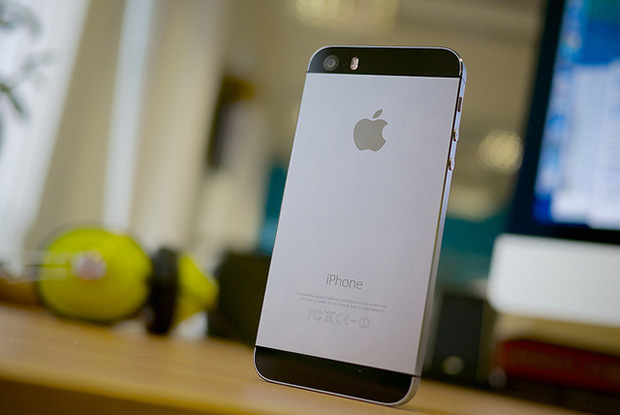FBI Bails On New York iPhone Legal Challenge After Obtaining Correct Passcode
For the second time in less than a month, the U.S. government has backed down from attempting to force Apple through a court order to help authorities access the contents of a locked iPhone. This time it was the Justice Department that sought Apple's assistance, willingly or not, with opening an iPhone 5s handset that was seized in 2014 as part of a drug investigation.
"Yesterday evening, an individual provided the passcode to the iPhone at issue in this case,’’ prosecutors stated in a letter to the judge. "Late last night, the government used that passcode by hand and gained access to the iPhone. Accordingly, the government no longer needs Apple’s assistance to unlock the iPhone, and withdraws its application."

The iPhone 5s handset at the center of the case belonged to Jun Feng, a suspect in a drug investigation in New York. Feng had already pleaded guilty in 2015, but the government still wanted access to his phone. Initially Feng said he didn't remember the phone's passcode, which prompted the Justice Department to try and force Apple to help thwart the device's security. According to The Wall Street Journal, it wasn't until after Feng learned that the locked iPhone was part of a high-profile case between the government and Apple that he provided the passcode to authorities.
This was the only other public legal case pitting the government against Apple, though a previous court filing suggests there are several similar suits around the country, most of which are under seal. Nevertheless, it doesn't look good for the government that it twice found a way to access the contents of a locked iPhone without Apple's assistance after claiming that it could only be done with the manufacturer's help. Should Apple have to defend itself in a similar suit at a later date, it can now point to these two cases to call into question whether the government can be believed or not.
The FBI had previously sued Apple in an attempt to set a legal precedent that effectively would force tech companies to help authorities sidestep the security of encrypted devices. It was a more high profile case than the one involving Feng because the phone in the previous case once belonged to Syed Farook, who with his wife shot and killed 14 people in San Bernardino and wounded 22 others.
Authorities bumbled that case within the first 24 hours by resetting Farook's iCloud password, which eliminated the possibility of an auto-backup or being able to restore a previous backup. Without a hack, the only way in was through a passcode, but as a security precaution, 10 failed passcode attempts in a row would result in the data being wiped. Apple refused to help at that point, saying that any assistance it provided would ultimately put the security of hundreds of millions of iPhones at risk. The FBI ultimately dropped its suit after paying a third-party more than $1.3 million to crack the phone's security, leaving the matter of a legal precedent to be fought another day.
"Yesterday evening, an individual provided the passcode to the iPhone at issue in this case,’’ prosecutors stated in a letter to the judge. "Late last night, the government used that passcode by hand and gained access to the iPhone. Accordingly, the government no longer needs Apple’s assistance to unlock the iPhone, and withdraws its application."

The iPhone 5s handset at the center of the case belonged to Jun Feng, a suspect in a drug investigation in New York. Feng had already pleaded guilty in 2015, but the government still wanted access to his phone. Initially Feng said he didn't remember the phone's passcode, which prompted the Justice Department to try and force Apple to help thwart the device's security. According to The Wall Street Journal, it wasn't until after Feng learned that the locked iPhone was part of a high-profile case between the government and Apple that he provided the passcode to authorities.
This was the only other public legal case pitting the government against Apple, though a previous court filing suggests there are several similar suits around the country, most of which are under seal. Nevertheless, it doesn't look good for the government that it twice found a way to access the contents of a locked iPhone without Apple's assistance after claiming that it could only be done with the manufacturer's help. Should Apple have to defend itself in a similar suit at a later date, it can now point to these two cases to call into question whether the government can be believed or not.
The FBI had previously sued Apple in an attempt to set a legal precedent that effectively would force tech companies to help authorities sidestep the security of encrypted devices. It was a more high profile case than the one involving Feng because the phone in the previous case once belonged to Syed Farook, who with his wife shot and killed 14 people in San Bernardino and wounded 22 others.
Authorities bumbled that case within the first 24 hours by resetting Farook's iCloud password, which eliminated the possibility of an auto-backup or being able to restore a previous backup. Without a hack, the only way in was through a passcode, but as a security precaution, 10 failed passcode attempts in a row would result in the data being wiped. Apple refused to help at that point, saying that any assistance it provided would ultimately put the security of hundreds of millions of iPhones at risk. The FBI ultimately dropped its suit after paying a third-party more than $1.3 million to crack the phone's security, leaving the matter of a legal precedent to be fought another day.

